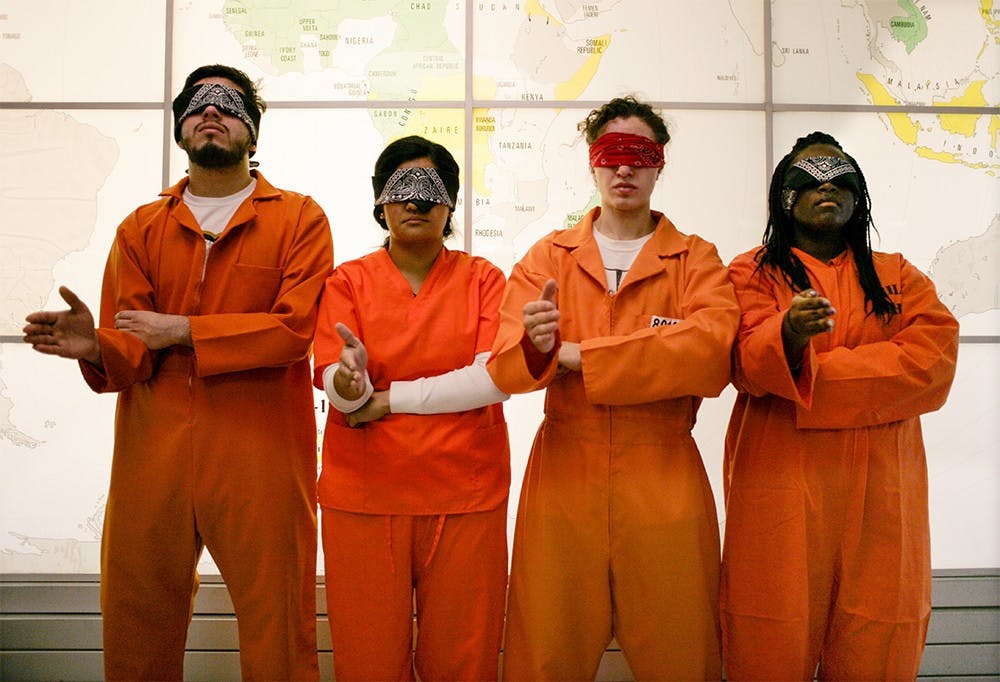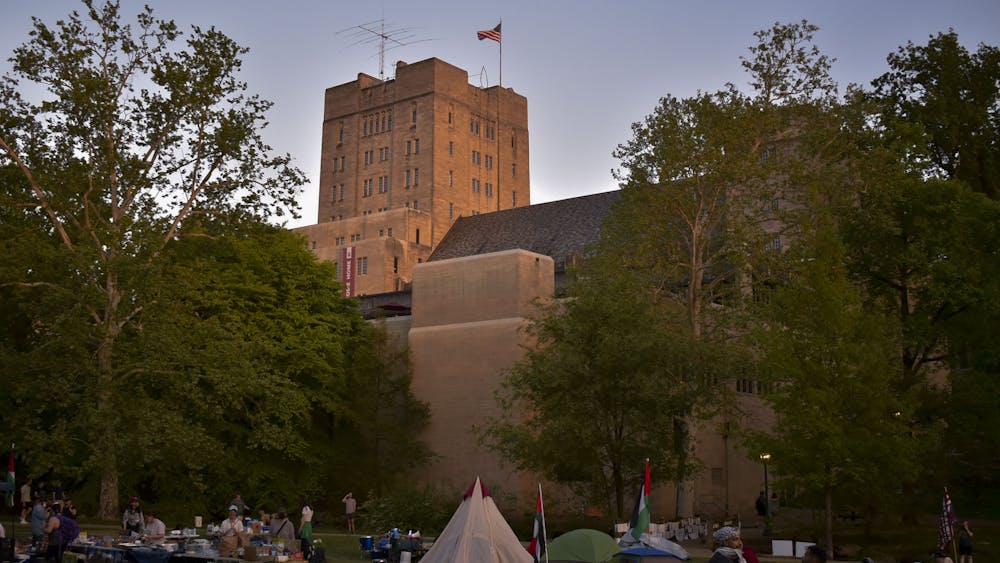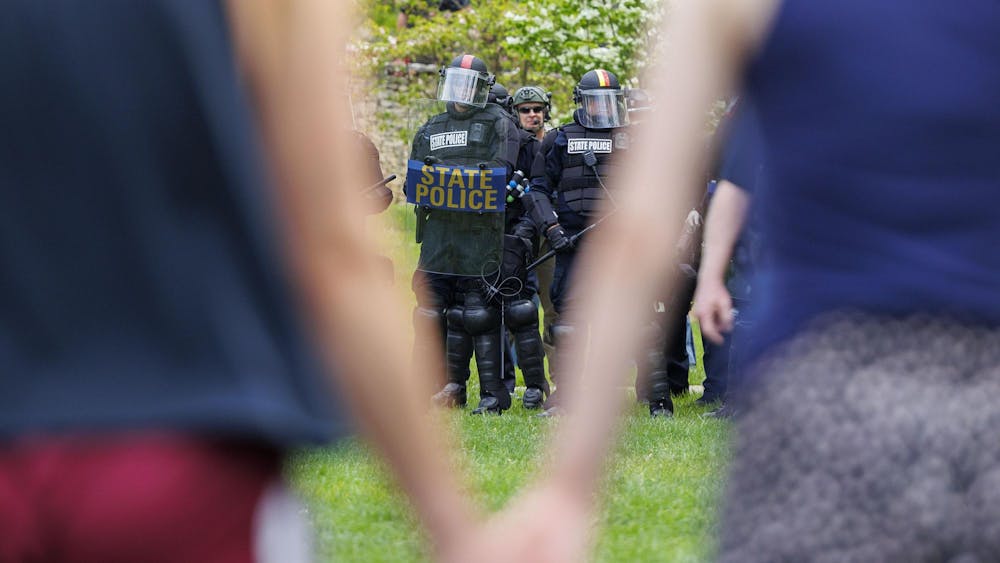Students shared their experiences with discrimination and brainstormed ways to stop racism on campus at an intergroup dialogue discussion Thursday evening.
In order to attract attention to the event, students stood in bright orange jumpsuits in locations around campus from Ballantine Hall to Wells Library. A sign next to the protesters invited passers-by to give each them a handshake. Many complied, while others stood in confusion.
“We had never seen anyone or anything stop traffic in Ballantine like that,” said junior Juan-José Jaramillo, one of the participants in the demonstration. “Most reactions were good, but sometimes I felt threatened and vulnerable.”
The discussion was held by the Alpha Xi Chapter of La Unidad Latina, Lambda Upsilon Lambda Fraternity. Mateo Perez, a LUL member, and Elizabeth Amador, president of Gamma Phi Omega International Sorority, facilitated the dialogue to talk about race, intersectionality and institutionalized discrimination.
Perez said the demonstration from earlier in the day showed the stereotypes that typically characterize minorities as criminals and illegals. He said the racial climate in the U.S., and especially on campus, is a point of serious contention.
“The public demonstration was inspired by the ‘Donald Trump Experiment,’ a video where people stood outside and did the same thing,” Perez said. “We did this to raise awareness, extending the talk from Latino immigrants to all people of color, as well as to promote our upcoming discussion.”
The “Donald Trump Experiment” was a video created in response to the presidential candidate’s remarks on Mexican immigrants and Latinos in America. Perez said the notion of meeting an immigrant could be enough to change many minds and create a healthier dialogue about race.
After showing the original video and hosting a series of icebreakers, Amador and Perez asked the discussion’s attendees to share their personal experiences with racism, as well as suggest ways the University could tackle discrimination.
Antonio Priestly said he attended because he felt underrepresented as an African-American during his time as a criminal justice student at IU-Purdue University Indianapolis. Despite this, he said he felt minority groups have come far in recent years.
“We aren’t being represented like everyone else is,” Priestly said. “It’s like we’re a small puddle in a big ocean.”
Priestly said he recently faced an act of racism while on a break from his job at a detention center in Indianapolis. He said he went to a gas station to buy something to drink, but one of the workers was wary from the moment he stepped inside.
“The man told me to leave, because he thought I was going to steal something,” Priestly said. “I kept my voice quiet, but when I left I realized how wrong that was and how upset that made me.”
This was far from the only instance of racism he has experienced due to the color of his skin, Priestly said. He said he knew his experiences weren’t distinctive, and all minority groups face their own versions of prejudice.
After discussing personal accounts and pointing out instances of institutionalized racism at IU, the group discussed ways to solve the problems, which included having an increased number of open dialogues, as well as taking concerns to professors and possible allies to promote change within the administration.
“We have to overcome the stereotypes we face every day,” Priestly said. “We’ve already proven we’re starting to make these changes, just by being in this room right now.”






